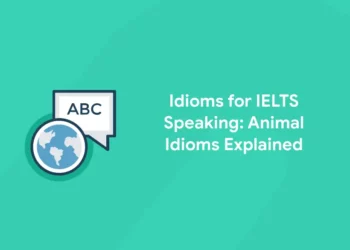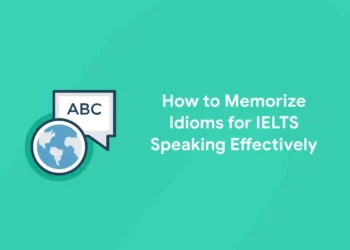Table of Contents
If you are a person who wishes to communicate in English with proficiency and accuracy, you should mind your use of tenses. Tenses are the most important topic in English language learning. Without tenses, English sentence construction remains incomplete. Learning tenses is not a difficult task. You can learn English tenses very easily with the help of a correct guide. Your mentor Aparana Mulberry is always ready to teach you the nuances of the English language from the basics. You can enroll in English Padiykkam with Inverted Coconut to efficiently handle the English language.
Let’s look into a simple example.
Seetha said to me, pointing to Mary, “see, that girl sleeps in the class”. Is this a correct statement? If your answer is NO, that means you are on the right track. You should correct the sentence as ” see, that girl is sleeping in the class”. Since you are now talking about an action that is happening at the moment of speaking, you should use the present continuous form in the sentence.
Tenses in English
The tenses in English can help you to understand the nature, quality, and characteristics of the verb used in the sentence. The tense denotes the time of an action. It can also denote the state of the action in a particular situation. The tense in a sentence can help you to identify the time of the action, whether it is a present, past, or future action. It is easy to identify the time of the action by simply looking at the tense used in a sentence. If you properly use the tense, you can communicate without any errors.
Tenses are the most powerful and effective tool which supports the language. It is the fundamental element or the building block of any language. Sentence lacks sense when you omit tenses. If you wish to convey the meaning adequately, you need a strong hold on tenses. The sentence will otherwise look absurd without tenses. Tenses can express things without being clumsy. If you wish to communicate properly, you should learn to use tenses properly.
Building complex or complicated sentence structures is possible if you could handle tenses properly. Communication will be handy only if you could learn tenses and their uses completely.
English grammar comprises three main tenses. The three main tenses are further classified into different forms. English tenses are three in kind, namely,
- Present Tense
- Past Tense
- Future Tense
The tenses in English are as follows
- Simple Present Tense
- Present Continuous Tense
- Present Perfect Tense
- Present Perfect Continuous Tense
- Simple Past Tense
- Past Continuous Tense
- Past Perfect Tense
- Past Perfect Continuous Tense
- Simple Future Tense
- Future Continuous Tense
- Future Perfect Tense
- Future Perfect Continuous Tense
Elevate your speaking skills with our Spoken English Course!
Simple Present Tense
Simple Present to talk about general truths, to talk about abilities, for dramatic effect to show future actions when it is part of a present plan to talk about our life, to refer to habits, refer to actions taking place at the time of speaking, etc
- The sun rises in the East.
- He cooks his food.
- He works in Japan.
- He speaks seven languages.
- He leaves for Calicut next
- The villain snatches the child and brandishes a sharp knife.
Present Continuous Tense
We can use present continuous tense for an action going on at the time of speaking, for a temporary action that may not be passing at the time of speaking, or for an action that has formerly been arranged to take place shortly.
- The boys are playing football.
- I’m reading a book
- To show a developing or changing
Present Perfect Tense
Present Perfect Tense is used to indicate completed activities in the immediate past (with ‘just’), to express past actions whose time is not given and not definite, to show completed action, to refer to past actions the effects of which we still experience, to denote actions beginning at some time in the past and continuing up to the present moment.
- He has just gone out.
- It has just struck twelve.
- He has been ill since last week.
- We have lived here for ten years.
Present Perfect Continuous Tense
Present Perfect Continuous Tense is used to show an action that began in the past and is continuing.
- Rema has been studying since four o’clock
- They have been working here since 2004
- He has been watching t v since morning
Simple Past Tense
Simple Past Tense is used to express an action completed in the past or to mention a habitual action in the past.
- He took my cards yesterday
- He finished his tasks
- He took exercises regularly
Past Continuous Tense
Past Continuous Tense is used to show an action going on sometime in the past.
- He was playing all the evening
- He was writing stories
Join our Spoken English program today and communicate with ease!
Past Perfect Tense
Past Perfect Tense is used to describe an action that is completed at some point in the post before some other action began.
- I played football yesterday
- I had finished my tasks when he came
- She had played football on the team
Past Perfect Continuous Tense
Past Perfect Continuous Tense is used to show an action that began before a certain point in the past and continued up to that time.
- He had been waiting there for three days
- He had been playing football
Simple Future
Simple Future It denotes an action or event which is still to take place.
- I shall tell him the best news
- We shall tell him the truth
- He will return tomorrow
Future Continuous Tense
Future Continuous Tense denotes an action as going on at some time in the future
- I shall be visiting her tomorrow
- I will be playing in the evening
- She will be waiting until night
Future Perfect Tense
Future Perfect Tense is used to show an action that will be completed in a certain future time.
- He will have left the place when you reach home
Future Perfect Continuous Tense
Future Perfect Continuous Tense is used to show an action that is in progress and which will continue until a certain point in time in the future.
- When the college closes for this summer vacation Rekha will have been working for six years
- By next year I shall be working here for five years
Elevate your speaking skills with our Spoken English Course!
Tips to master English Tenses
1: Which of the sentences below is grammatically correct?
Tense should be employed accurately. Tenses are established on verbs and demonstrate the period or the continuity of an operation or activity regarding the speaking. There are four types of tenses and the three categories have their cluster of attributes. We typically employ all of these in exchange, but it is essential to select the accurate tense while articulating so that the sentence does not evolve as challenging to communicate or comprehend.
Unlearn and relearn to use the tense with clarity. You need to understand the use of the tenses to use them properly. Learn the pattern used by each tense and use it wisely in a sentence. Learners should know the importance of tenses in a particular sentence. If you understand it, it is possible to use it properly. Learn examples and grab each opportunity to communicate. Your communication skills can be improved if you use tenses in the correct sense.
English language learners are often afraid of tenses. If you know tenses thoroughly, you could communicate in a proper way. Reading books, articles, and newspapers can improve your English language. Watching videos, movies, short films and series can improve your language fluency. Finding the best resource person is the most essential criterion to improve your language proficiency. Aparna Mulberry is a native English language trainer who could bring out the real language potential in you. You can start learning the basics from the tutors. As the classes are available both online and offline mode, the course can effectively save your time and focuses more on what is essential.
Master pronunciation and fluency with our Spoken English classes.











